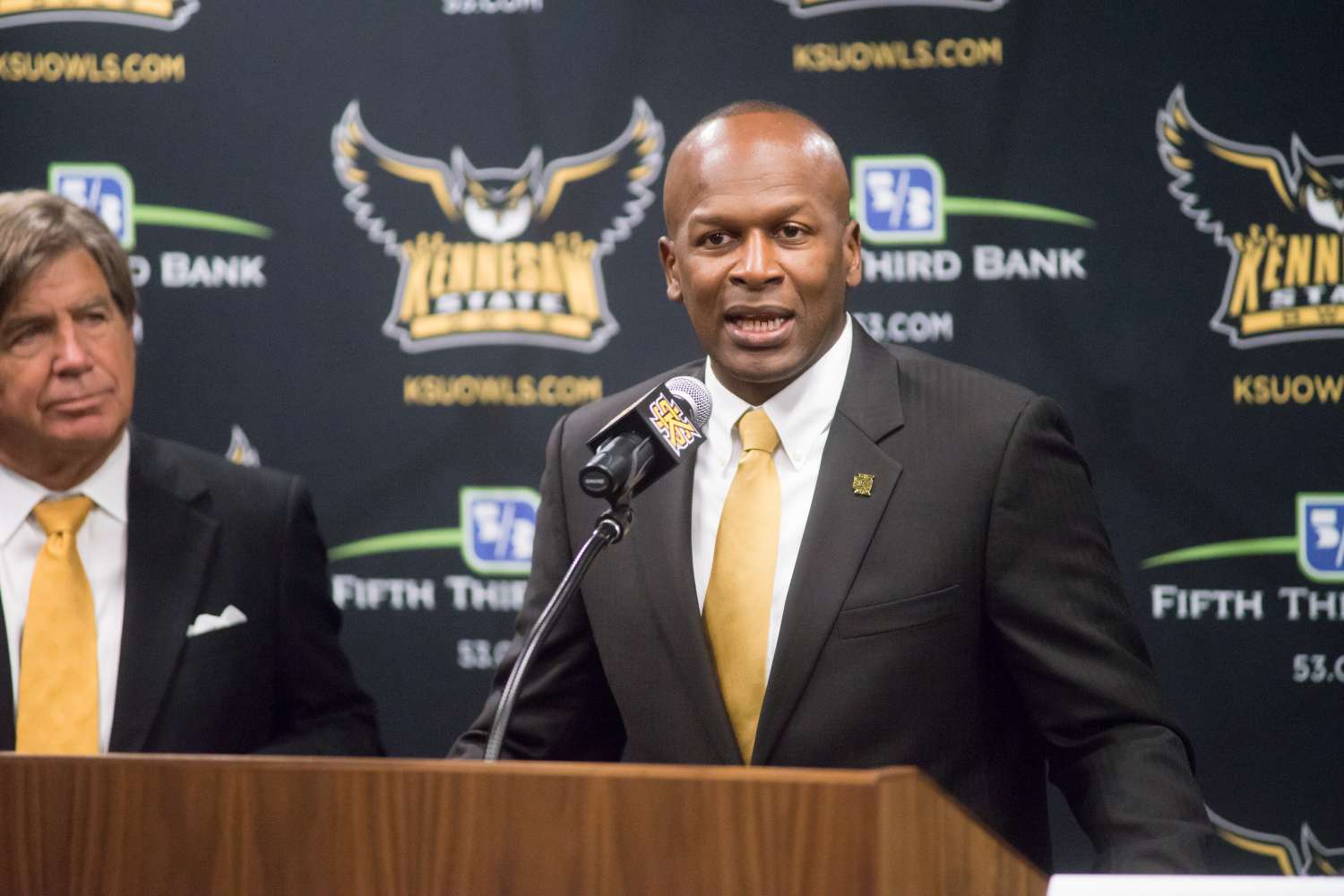
Mike Foster (Staff Writer, Opinion Editor)
Kennesaw State’s director of athletics, Vaughn Williams, doesn’t believe that a recent victory for the power conferences in collegiate sports is a bad omen for his humble program.
On Thursday, the NCAA Division I board of directors voted 16-2 in favor of a recent power play from Southeastern Conference commissioner Mike Slive and the other four largest conferences in the NCAA, which have been pushing for the allowance of athlete “autonomy” for their member institutions. The approval means stipends for full cost of attendance at the institutions that can afford the funding to athletes, along with four-year scholarship offers,
Despite being in one of the smallest conferences in Division I, Williams endorsed the new platform.
“We are different than let’s say a Georgia, and they are different from us. There’s no pretending. I don’t see a problem with that,” Williams told The Sentinel on July 11. “There’s a different price tag for the businesses that they run, and I think it’s up to the institutions to run the businesses the way they see fit.”
The negative implication for smaller schools is that greater benefit opportunities at Power 5 schools could increase recruiting disadvantages, though areas that are not allowed to be touched by any new legislation, such as scholarship numbers and transfer policy, were the same areas Williams saw vital to keeping a fair playing field.
“What needs to be preserved are things that keep things competitive for mid-major schools,” Williams said. “If the scholarship number is 15 for women’s basketball across the board, that should include a Georgia or a Tennessee. We want to see transfer rules maintained with a level of integrity.”
Kennesaw State was the subject of a cost-of-attendance lawsuit when former women’s basketball player Ashley Holliday became the first female athlete to file a lawsuit against the NCAA and its respective conferences. The lawsuit maintained that student athletes are unfairly restricted in opportunities for compensation and income under NCAA regulation–an issue that will still stand at the mid-major level, where profits related to programs, conferences and media contracts are less lucrative.
According to a 2013 report from the USA Today, Kennesaw State ranks 167 out of 230 public NCAA Division I schools in total athletic department revenue. Kennesaw State’s athletic budget is listed at $12.5 million, compared to the University of Georgia’s $98 million.
85.6 percent of Kennesaw State’s budget is subsidized, while many of the largest institutions operate with no subsidies.
Williams sympathized with the idea that programs could internally assist student athletes if they can afford the offered benefits.
“The big five are a different business model and I’m fine with that,” Williams said. “Why should I be prevented from using my resources because another institution doesn’t have the same resources that I do?”




